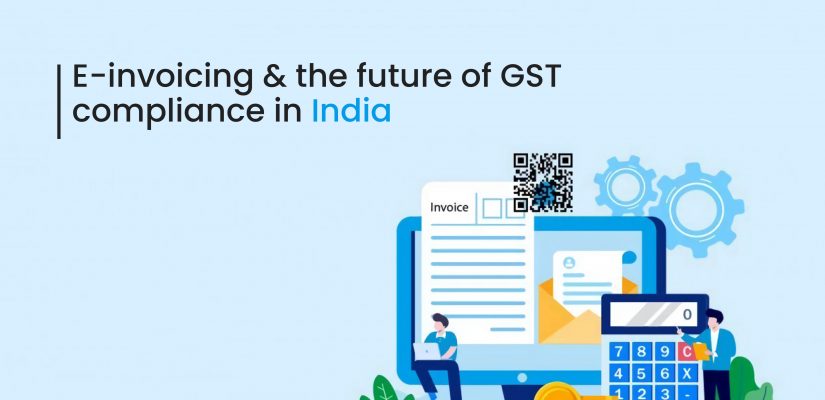
E-invoicing and the future of GST compliance in India
On October 1, 2020, mandatory e-invoicing under the Goods and Services Tax was fully enforced after being postponed twice in 2020. Although this latest invoice authentication method only applies to business-to-business (B2B) transactions by businesses with an annual turnover above 500 crores, there has been a strong initial response to e-invoicing for the time being. More than 65 lakh invoice registration or invoice reference numbers were released on the Common Platform in the first week of implementation. While issuing GST returns, this new system is expected to chisel out several issues, reduce the turnaround time for e-way bill verification as well as keep tax evasion in check. E-invoicing is only available to companies falling under a specific turnover rate in an effort to allow the new method to breathe and iron out the initial kinks. Yet eventually, as more and more firms take up e-invoicing and get acquainted with the new method, the threshold will be reduced and more companies will be taken under the e-invoicing radar. As part of its staggering strategy to introduce e-invoicing, as of 1 January 2021, the authorities made e-invoicing available to companies with an annual turnover above 100 crores. Finally, beginning on April 1, 2020, all business-to-business (B2B) transactions, regardless of turnover, were forced to implement e-invoicing. Experts have also advised that all business-to-customer (B2C) transactions be taken under e-invoicing regulation. So, how can e-invoicing alter the future of compliance with GST in India and why is it important? Let’s explore it.
- E-invoicing is likely to subsume the e-way bill system
In a statement to the media, Finance Secretary Ajay Bhushan Pandey stated e-invoicing is likely to replace the existing e-way billing system in the future. Additionally, if a company has a legitimate GST invoice and an e-way bill for orders that satisfy the requirements, the transfer of products is allowed. The CBIC has issued a notice that it will no longer be mandatory for businesses that have taken up e-invoicing to hold physical copies of a tax invoice. If an invoice reference number (IRN) for the products in question has been created by the company, and a QR code, both an IRN and a QR code are more than enough evidence for the authentication of the goods being transported.
- GST evasion to be kept in check
Reports revealed that between April and December 2018, India only suffered losses worth around 48,000 crore due to tax evasion. Obligatory e-invoicing guarantees that any single B2B GST invoice created by an organization not only retains a consistent schema such that supporting structures can be efficiently processed but also authenticates the authenticity of the GST invoice electronically by issuing an invoice reference amount. When filing GST returns, this invoice reference number must be specified, making the auto-population of a particular portion of the data in the GST return forms, thus removing the problem of false invoicing.
- Paperless invoice regime is the future
In GST operations, e-invoicing would dramatically decrease manual paperwork and allow faster invoice authentication. In addition, a digital QR code or Quick Response Code for B2C purchases would decrease the processing time for product authentication at revenue checkpoints, thus minimizing losses due to missed deliveries. Since each GST invoice will be submitted to the popular electronic verification server, the invoice information will be auto-populated when GST returns are being filed.
- Big data to improve GST best practices
Tax officials now have mountains of data at hand with a decent chunk of tax operations being digitized and this data will be used to evaluate and strengthen GST activities. Tax authorities will now be able to identify and eradicate malpractices, promote and advocate GST enforcement, as data will be streamlined because of the standardized schema.
Conclusion-
Error-free records, better performance, minimized data reconciliation cases, quicker production of input tax credit statements, greater clarity, reduced tax, and compliance risk, and eventually, a substantial reduction in the carbon footprint of an organization are some of the most critical advantages of e-invoicing. But to conclude, e-invoicing is around to stay, and in the near future, it will be absolutely necessary for all firms. You should schedule a consultation with our team of service professionals to know more. Legal way can facilitate you with e-invoicing, GST returns, smart invoice reconciliation, e-way bills, GST estimates, and GST registrations.